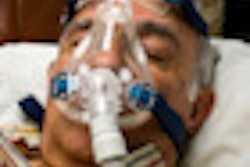Case Western Reserve University School of Medicine has received a $3.8 million grant from the National Heart, Lung, and Blood Institute to study sleep apnea as a possible cause of atrial fibrillation (AF), the most commonly diagnosed type of arrhythmia.
The five-year grant will enable researchers to study how sleep apnea produces functional and structural heart changes that may contribute to the development of AF. Changes in heart structure, including increases in blood pressure and oxygen level reductions, stemming from sleep apnea will be characterized, the researchers said. They hope to use the data to develop new AF prevention and treatment options in clinical trials.
Because sleep disorders such as sleep apnea are common among patients with heart disease, researchers believe that the repetitive episodes of breathing pauses during sleep may provide a potential basis for many of the unexplained risk factors underlying AF.
The basis of the new research will be a case control study of 150 individuals with paroxysmal AF (PAF), an occasional, irregular heart rhythm and early-stage risk factor for persistent AF, which occurs before changes in the heart's condition and function are present, and also involves 150 individuals as matched controls. A subset of those with PAF who are identified to have sleep apnea will also undergo treatment for sleep apnea.
In addition, the researchers seek to clarify the extent by which the frequency of stopped breathing, the type of sleep apnea, and reduced oxygen supply are associated with PAF, independent of any structural heart abnormalities. Throughout their study, researchers will assess how changes in cardiac structure, inflammation, or autonomic nervous system dysfunction are involved in the relationship between sleep apnea and PAF, identifying if patterns of AF differ in patients with sleep apnea.
In prior research, a strong association between sleep apnea and AF had been established, based on findings involving thousands of participants in large-scale epidemiologic cohorts. The data, however, did not include information characterizing changes in heart structure, nor did it include temporally collected, detailed biochemical measures collected from blood and urine, which can indicate how inflammation and oxidative stress caused by sleep apnea may lead to AF, according to the researchers.
The newly funded research aims to gather more specific data, obtained by examining heart images that detail its pumping function and the condition of its walls.
The research findings could identify key outcomes for clinical trials and bolster evidence for considering sleep apnea as a potential target for new strategies to reduce AF-related morbidity, including stroke, heart failure, and death, the researchers noted.



















